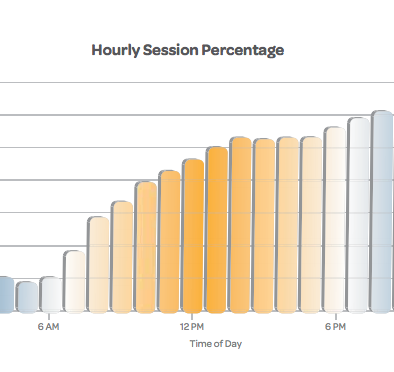Nearly all (95%) of top brands are active on Twitter, and 23% of top brands have Twitter handles dedicated to customer service, according to a Simply Measured study. But how effectively are brands responding to the tweeted requests, concerns and complaints of individual consumers? A new study by CRM analyst Ashley Verrill revealed that many of these tweets go unanswered — over the course of 4 weeks, brands responded to only 14% of the tweets sent.
The “Social Customer Service Race” Study
Brands must use social customer relations management systems to find and prioritize social media comments and help requests in real time. To test brand response rates, prioritization and timing, 14 leading consumer brands in 7 industries were sent customer service tweets from personal Twitter accounts. Each company received 1 tweet per weekday for 4 consecutive weeks; during the first and third weeks, our employee participants used the brand’s Twitter name with an @ symbol, but during the second and fourth weeks of the race, only the brand name was used (with no @ symbol).
The questions or comments used for the study were meant to elicit a response, based on the social media management best practices of several industry experts. The questions fell into 5 categories:
- Urgent, or I need help right this second.
- Positive (“thank you!”).
- Negative.
- A question from their FAQ page.
- Technical, or needs more than one interaction to solve.
Brands Fail to Respond
Out of 280 tweets sent over 26 days to 14 big brands, only 40 responses were received – some more than 24 hours after the original tweet. While this is a small-scale study, there’s no doubt that the results are not so impressive. (This also makes sense given the data from Simply Measured, which found that out of the 23% of top brands that have dedicated customer service handles, only 7% respond to 50+ tweets/day, and just 3% handle 100+ tweets/day.)
Looking at the results reveals some major pointers for social CRM:
Listen for your brand’s name – with or without the @ symbol. The study looked at how long it took each brand to respond and the percent of total tweets that received a reply. One of the main findings was the “overwhelming” failure of brands to respond to tweets that didn’t include the brand’s name with an ‘@’ mention. Only 3 out of 40 (8%) of the total responses received (throughout the course of the study) happened when a brand’s name was tweeted without the ‘@’ symbol. The study’s author notes that “most social listening software can be programmed to listen for mentions without the @, with the @, and #brandname” — brands should be actively listening for all three.
Expand your keywords (‘triggers’) to help prioritize responses. Brands also need to chose the proper keywords to prioritize when scanning company mentions in tweets. While many brands responded to tweets with the words “thank you,” other words (or ‘triggers’) that should have warranted a more immediate response went unanswered, including “buying,” “switching,” “help” and “mad.”
Pay attention to who’s tweeting. Companies also did not seem to have methods for tracking responses to individual tweets (one tweet was replied to twice, with different answers), nor for noting which users tweeted more frequently and/or had more frequent social interactions with the brand. Those who use Twitter more actively are generally more inclined to share their customer service experiences with their social media audience; brands would do well to use software that examines the Twitter activity of a user, and keeps track of that user’s interaction with the brand.
Both studies indicate that in order to keep up with customer expectations, brands need to expand their focus on social media to include customer service efforts in addition to marketing initiatives.
See the full results in this infographic, breaking down the response time and percentage (per tweet) for each of 14 major brands:


